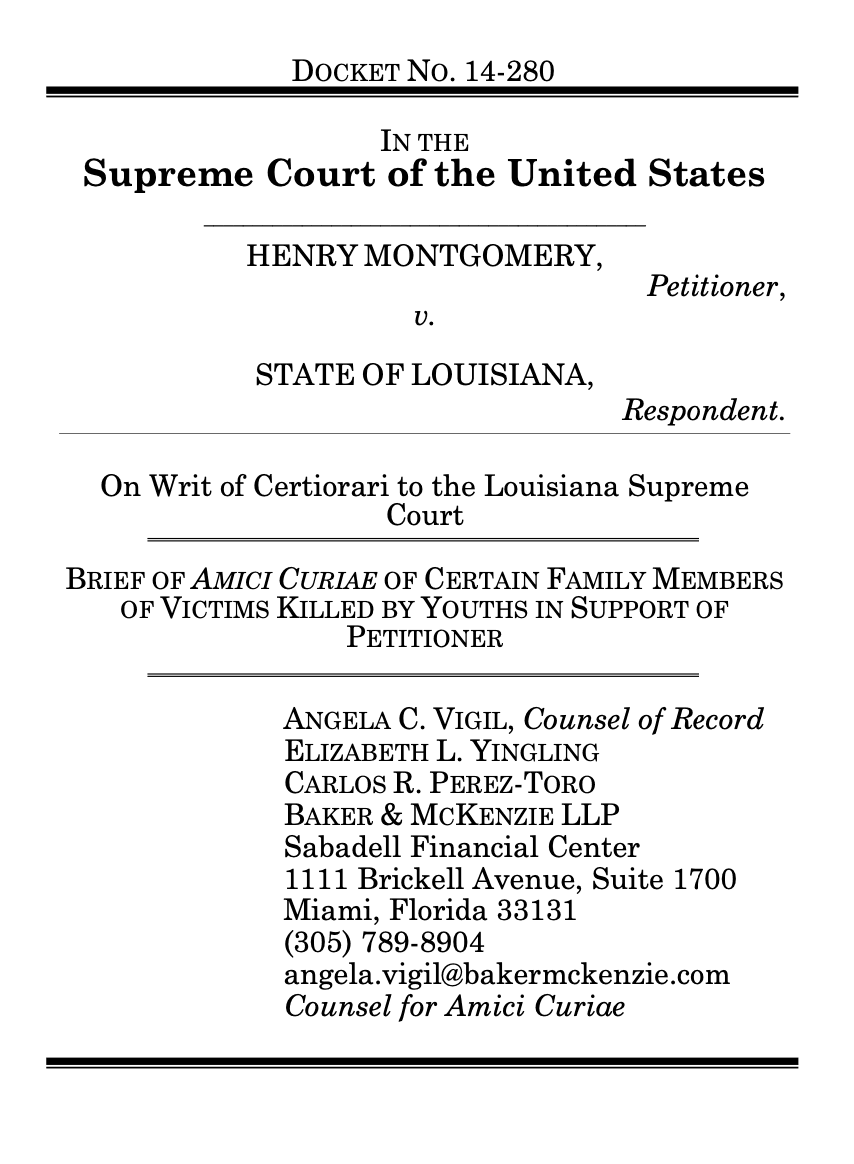
Summary of Argument
Amici support the retroactive application of Miller v. Alabama, 567 U.S. __, 132 S.Ct. 2455 (2012). Specifically, Amici seek the application of Miller’s prohibition of mandatory life sentences without parole to youth who were sentenced prior to the Court’s 2012 decision. Just as the mandatory life sentence imposed on Kuntrell Jackson for a 1999 murder and on Evan Miller for a 2003 murder were unconstitutional, so too was the mandatory life sentence imposed on child offender Henry Montgomery for a 1963 murder. See, e.g., id. at 2460.
Amici have experienced the indescribable pain of losing a loved one to murder – a pain that never goes away. While the lives of their loved ones cannot be restored, those lives can be honored by those who survive and remember them. Amici believe that failing to provide children sentenced to mandatory life without parole an opportunity for review dishonors, rather than honors, the memories of their loved ones. The mandatory life without parole sentences imposed on children before Miller do not provide "closure" to the victims, for there is no such thing as "closure" in these circumstances. Rather, such a sentence only prolongs the agony of their grief by adding to the number of lives tragically lost.
Life without the possibility of parole is permanent retribution – an "eye-for-an-eye" punishment that belies everything Amici's loved ones stood for: mercy, fairness, and redemption. Failing to apply Miller retroactively forecloses the possibility that these children can grow into mature adults who recognize the value of the lives they took, express true remorse for their actions, and prove themselves capable of returning to society and doing the good the murder victims can no longer do. Applying Miller retroactively provides an opportunity for the real justice Amici hope to receive – the justice that will honor their family members.